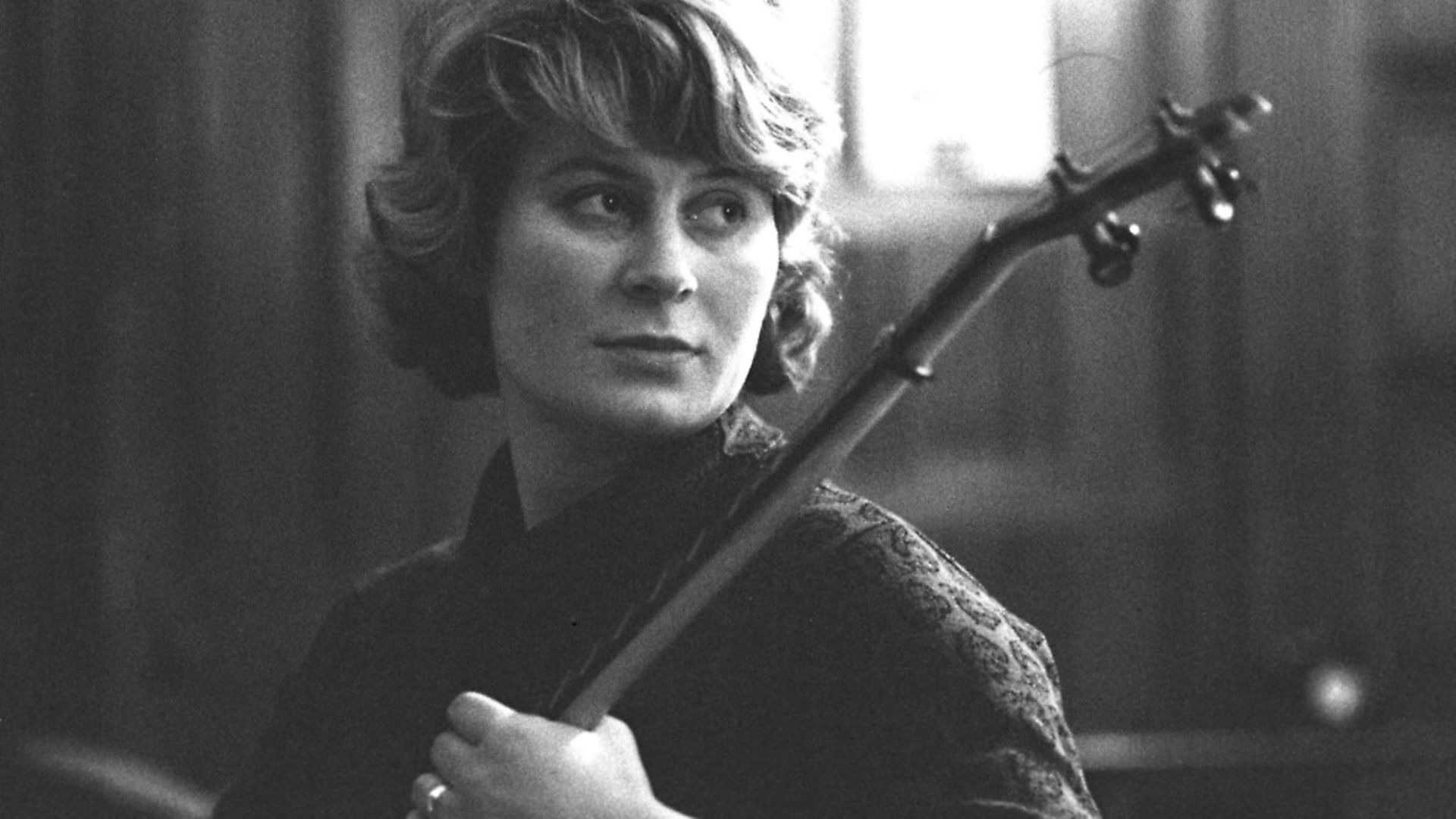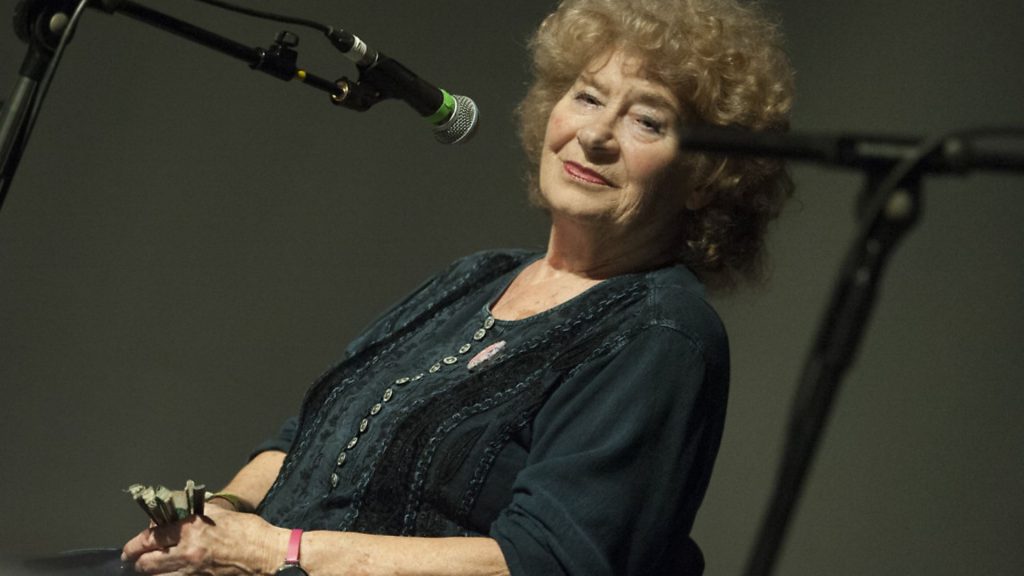
The folk musician whose memoir gets closer to the essence of Englishness than most

Think about what fires and inspires great literature. Passion, intensity, strong characters, gripping stories, powerful imagery, a timelessness of theme and emotion that can make something written in, say, the 18th century still seem fresh and relevant today.
The same ingredients also apply to great music, meaning that a crossing of the genres often provides memorable creations: Kate Bush’s Wuthering Heights and Elton John’s Goodbye Yellow Brick Road are arguably the highest profile examples, but did you know that T’Pau’s China In Your Hand is about Mary Shelley and Frankenstein?
It’s usually at this point that the quote, ‘writing about music is like dancing about architecture’ is trotted out and attributed to Frank Zappa (although it seemed it was actually the American actor and musician Martin Mull who first used the phrase), but although it’s a nifty bit of word play it’s also bollocks.
Music has inspired some incredible writing, from the pioneering rock journalism of Lester Bangs to chroniclers of music history such as Greil Marcus to the current crop of outstanding memoirs, especially from women such as Tracey Thorn, Viv Albertine and Cosey Fanni Tutti.
For a nation so steeped in its own literature and music it’s perhaps surprising to learn that it wasn’t until as recently as 2015 that we had a literary prize dedicated to books about music and musicians.
The Penderyn Music Book Prize, sponsored by the Welsh whisky distillers, announced its fifth winner earlier this month, the first autobiography and the first book written by a woman to carry off the award. I was fortunate enough to be in Laugharne, south Wales, to see veteran folk singer Shirley Collins pick up the prize for her memoir All In The Downs: Reflections on Life, Landscape and Song.
Collins’ book saw off strong competition from a wide-ranging and eclectic shortlist that also included Suede frontman Brett Anderson’s autobiography Coal Black Mornings, Michael Diamond and Adam Horowitz’s The Beastie Boys Book, Inner City Pressure: The Story of Grime by Dan Hancox and Going For A Song: A Chronicle of the UK Record Shop by Garth Cartwright, an occasional contributor to The New European.
The jury comprised Rough Trade founder Geoff Travis, author and chronicler of women in music Lucy O’Brien, Chris Difford of Squeeze, ex-Scottish international footballer Pat Nevin, the Guardian’s deputy music editor Laura Snapes and journalist Jude Rogers, a pretty rock’n’roll line-up who awarded the prize to the least rock’n’roll title on the shortlist.
Now 82, Shirley Collins is one of the most significant figures in English music since the Second World War yet she could walk down any street in the country largely unrecognised. She even worked in a job centre for a while. Granted, she vanished from the stage and studio for 25 years before her remarkable 2016 comeback album Lodestar, but her story and the explanation for her quarter-century musical hiatus underpin one of the best British musical autobiographies of recent years.
All In The Downs recounts a life dedicated to the preservation and promulgation of English traditional song. It’s also an honest and uncompromising account of chauvinism and ill-treatment from some surprising quarters: first there was the American music collector Alan Lomax, with whom Collins travelled widely in the American south during the 1950s recording the folk music they encountered during Collins’ first serious relationship. The country girl from Sussex found herself exposed to racism shocking in its casually murderous nature (there’s a particularly chilling quote in the book from an Alabama farmer that I won’t repeat here because of its appalling terminology). Yet despite the pair travelling as a team Lomax’s only reference to the presence of his colleague and lover in his memoir is the addendum, ‘Shirley Collins came along for the trip too’.
Through Lomax she met that giant of the folk music revival Ewan MacColl, about whom Collins is scathing, both musically and personally.
‘I simply knew here was a vain, conceited man and, to my ears, not a convincing singer,’ she writes, before detailing how MacColl inflicted a 1950s MeToo moment on the 20-year-old, a shocking story that concludes in Collins’ trademark understated style, ‘I fled, furious that I’d wasted money on the bus fare’.
Her marriage to Ashley Hutchings, bass player with Fairport Convention, Steeleye Span and the Albion Band, broke down as a result of his infidelity.
When the woman in question began turning up at a National Theatre production in which Collins and Hutchings were performing together, standing directly in front of Collins wearing Hutchings’ sweaters, the singer developed dysphonia, a psychological condition that paralyses the voice and would keep her from the stage for 25 years.
Yet for all her mistreatment at the hands of three of the most important figures in the 20th century English folk movement Collins has still managed to carve out a lengthy and successful career with her straight-up, embellishment-free interpretations of traditional song (a folk purist, she has strong issues with artists who write their own songs and call it ‘folk music’) to become one of the most important and enduring figures in the genre.
‘No dramatising a song, no selling it to an audience, no overdecorating in a way that was alien to English songs,’ she writes, describing her performing philosophy, ‘and most of all, singing to people, not at them.’
There is far more to All In The Downs than autobiography, however. Collins’ love for the English oral tradition shines out of every page and her analysis, based on seven decades’ worth of musical experience, has much to tell us about the place and the times we live in today.
Coming from a nation that claims to have a stronger patriotic sense of itself than any other, many English people have a curiously confused relationship with their heritage and national identity. Collins’ book immerses its author’s life and outlook in the landscape itself, especially that of her native Sussex, to offer a major contribution to the seemingly endless debate of what Englishness actually is.
I’ve always wondered why a nation so overtly proud of its history and heritage rejects so many of the traditions on which its national character was forged. While the Irish, Scots and Welsh are happy to embrace their traditional music and oral culture, the English either ignore it or are outright hostile to it. If Shirley Collins was from County Clare, for example, she’d be a regular on talk shows and hailed as an Irish national treasure, while here she’s known only to a select few.
Yet she has made an enormous contribution to English music and culture and, by extension, social history by reviving and recording the songs of generations of working people, not least her own Sussex ancestors.
‘I wonder why my family had such a deep feeling for England as a country,’ she muses. ‘They weren’t wearing rose-coloured spectacles: their lives had never been easy, my grandparents’ particularly had been harsh and unfair in so many ways. They loved England, but weren’t ignorant of its dark history.’
The wider antipathy towards English folk music may stem from the actions of the people who arguably worked hardest to preserve it. Song collectors like Bert Lloyd and Cecil Sharp roamed the countryside in the late 19th and early years of the 20th centuries noting down songs, tunes and dances from locals who could sing songs that dated back centuries, having been handed down through the generations. The Industrial Revolution saw a mass migration from the countryside to the growing cities and most of the songs could have been lost forever were it not for recordings and transcriptions that were made back then.
However with that preservation went a certain amount of cultural appropriation. Sharp’s English Folk Dance and Song Society, based at Cecil Sharp House in north London, claimed the collected material for the middle and upper classes who appropriated the songs and dances for themselves.
Composers began plundering the collection to produce classical versions of working people’s songs, all jaunty piano accompaniments and plummy baritones that excised the grit and feeling from the songs, or lush strings and variations on themes as far from the songs’ horny-handed origins as could be.
Indeed when Collins, a working-class girl from Hastings, wanted to access the archive at Cecil Sharp House to research songs and tunes she was met with resistance and outright obstruction.
‘Perhaps it was a class thing,’ she writes, acidly, ‘the Society was very upper-middle class at the time. Just imagine the presumption of a girl from the same class of people those songs had been taken down from all those years ago!’
She also describes a 1960 event held at Cecil Sharp House and attended by Princess Margaret where everyone was in evening dress.
‘It all looked so polite, so joyless, rather as if dancing was more a duty than a pleasure,’ Collins recalls. ‘There was nothing about it that felt robust or ‘of the people’.’
Since those starchy days there has been something of a wider folk revival in England that has loosened those class barriers – most towns have a folk club and the summer festival season is filled with events across the country – but still the nation as a whole sneers at this authentic expression of its national identity.
We can embrace the twee pomp of the Last Night of the Proms, for example, but songs and traditions that came from outside the conservatoires and universities are to be derided. Yet how much more genuine an expression of Englishness can there be than a song of the fields or the mines or the shanties of the sea?
Why are we expected to rally behind a sanitised version of Englishness, a limpid, built-on-sand jingoism that bears little relation to reality? Is Mark Francois reading a Tennyson poem he’d seen in a Bond film in a manner that suggested he’d never actually read English before – as he did at a recent meeting of the Tory eurosceptic Bruges Group – really a more worthy expression of national identity than Shirley Collins singing The Whitsun Dance, about how after the First World War maypoles were replaced by war memorials in villages across the country and, with a large chunk of the male population killed, ‘the ladies remember at Whitsun, and the ladies go dancing at Whitsun’?
It’s the kind of vacuous veneer of nationality expressed at that lectern by Francois and cribbed from Judi Dench on his DVD of Skyfall that facilitates modern Englishness becoming such a confused and flimsy thing. The true voices of the people are there in the songs of Shirley Collins, the songs created from the landscape, the turning of the seasons and the rhythms of the working year, yet these are roundly rejected in favour of empty-headed flag-waving, posturing and sloganeering. It’s not the only reason we’ve ended up with Brexit but it’s certainly one of them.
‘Such a lack of respect has always extended, as well, to the people the music actually came from, the poor of England,’ writes Collins. ‘It seems to have been far easier to scoff than to listen, and to understand and appreciate how much of our social and artistic history is embedded in these songs, how beautiful are many of their words and melodies, and how intrinsically English.’
To paraphrase the woman herself this is a positive, inclusive expression of Englishness offered to the world, not at it.
All In The Downs by Shirley Collins is published by Strange Attractor Press, price £16.99










